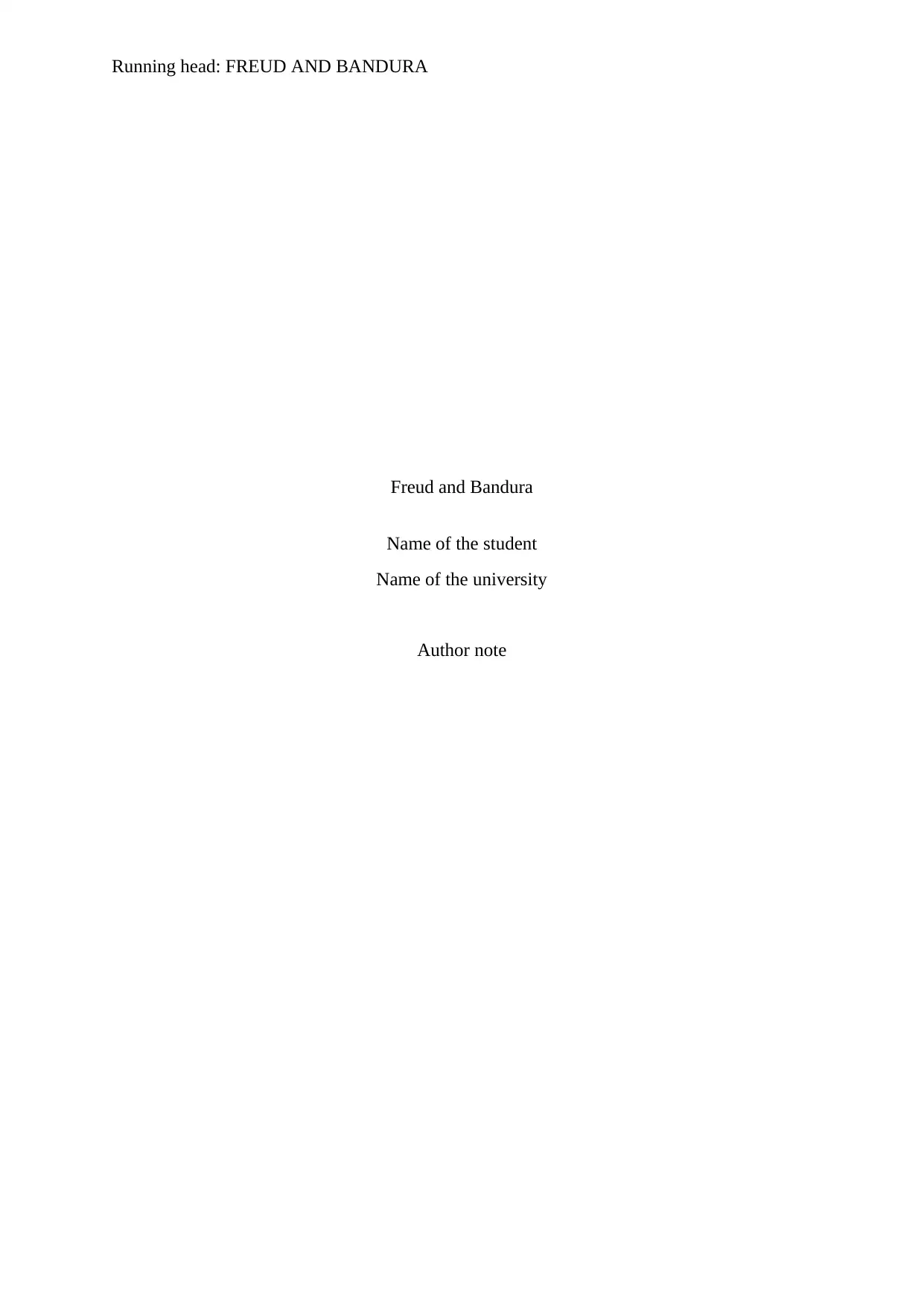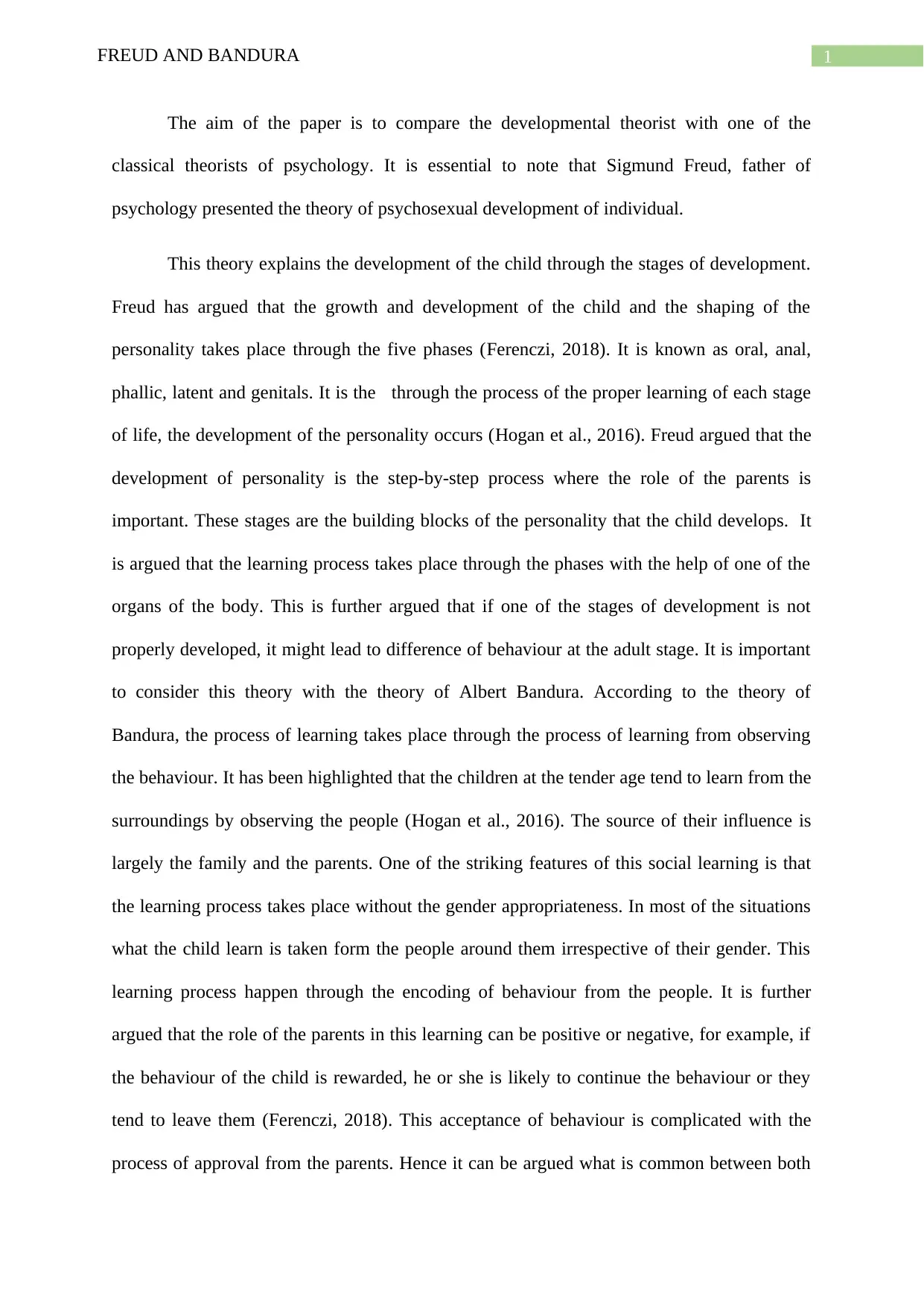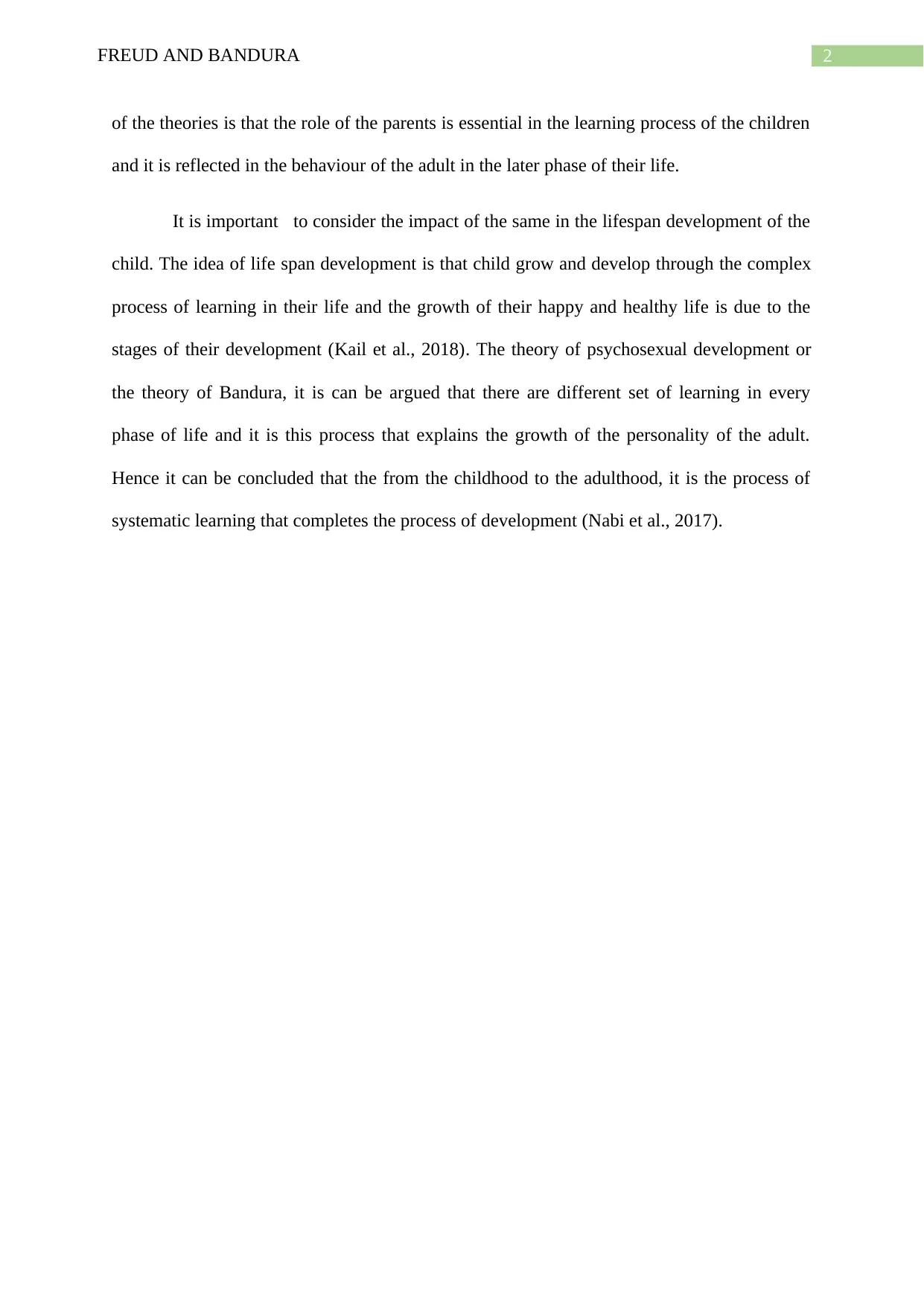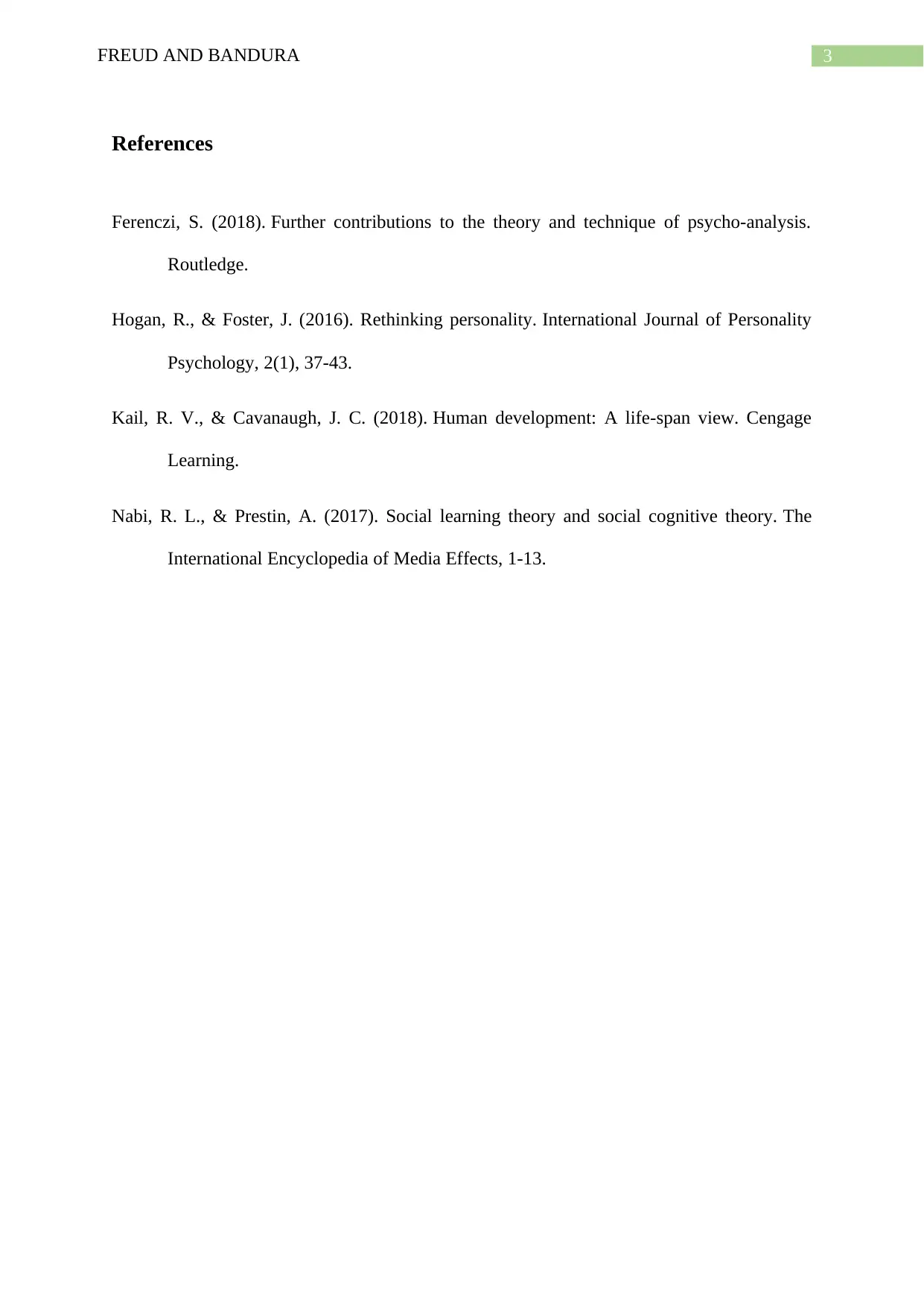A Comparative Study of Freud and Bandura on Lifespan Development
VerifiedAdded on 2023/04/11
|4
|647
|168
Essay
AI Summary
This essay provides a comparative analysis of Sigmund Freud's psychosexual development theory and Albert Bandura's social learning theory, highlighting their perspectives on child development and the role of parents. Freud's theory emphasizes the importance of psychosexual stages in shaping personality, while Bandura's theory focuses on learning through observation and social interaction. The essay explores the common ground between the theories, particularly the significance of parental influence on a child's learning process and its lasting impact on adult behavior. Ultimately, the essay connects these theories to the broader concept of lifespan development, arguing that systematic learning throughout life contributes to the growth and personality of an individual from childhood to adulthood. Desklib provides access to this and many other solved assignments for students.
1 out of 4










![[object Object]](/_next/static/media/star-bottom.7253800d.svg)